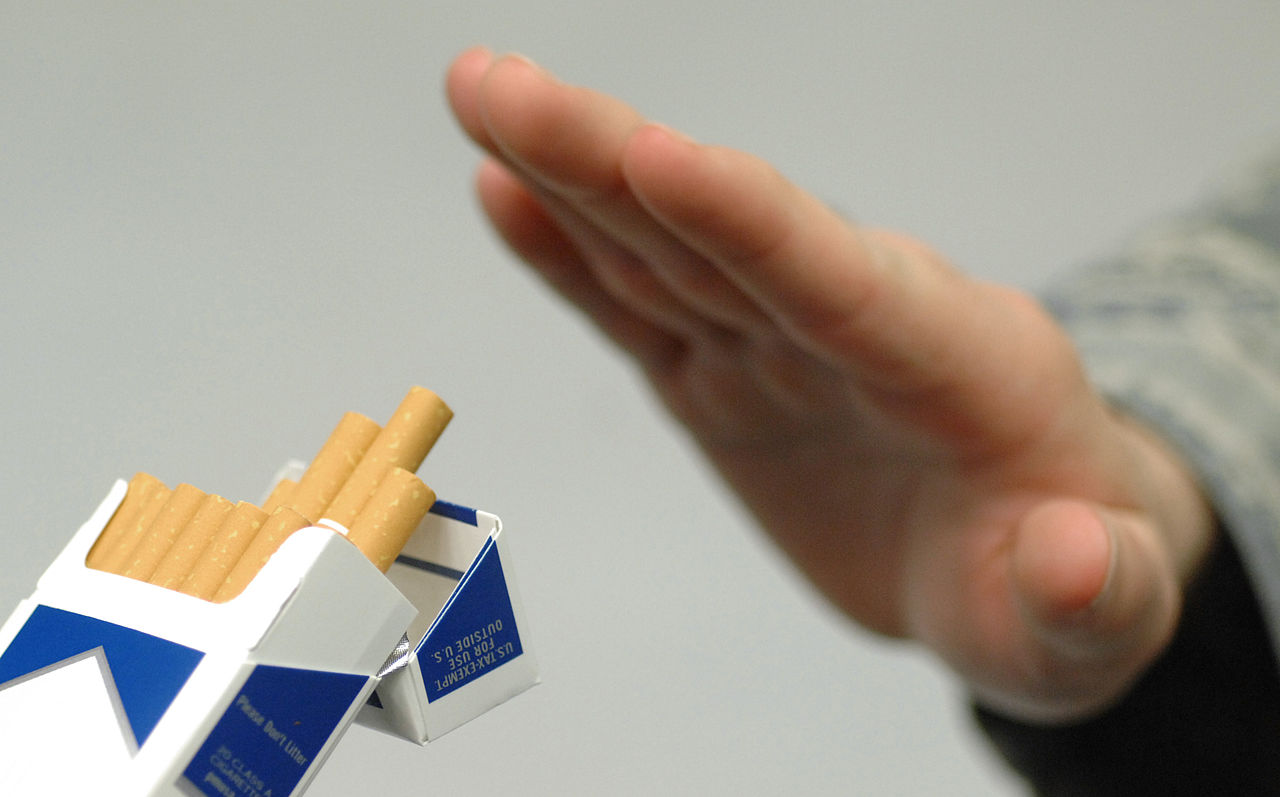
You’re ready to quit smoking, but you’re concerned that it might mean that you put on extra pounds. But while it’s true that some people gain weight, many don’t.
When you quit, it’s easy to get in the habit of eating more. Cravings, boredom, and stress can trigger overeating. But you can avoid an uptick on the scale with these tips from people who’ve been in your shoes.
Be picky about what (and how) you eat.
A balanced diet keeps cravings at bay and your weight in check. Eat lots of fruits and vegetables. Cut back on salt and added sugar.
“Definitely eat breakfast,” says registered dietitian Angel Planells, of the Academy of Nutrition & Dietetics. “You’ll have less temptation to overeat at lunch or dinner.”
Her advice: Eat 5-6 small meals instead of 2-3 large meals. Enjoy your food and savor every bite, he says. When you’re full, put your fork down.
Healthy drinks helped Shannon Phillips manage her weight after quitting. “I tried herbal teas and homemade, healthy smoothies, which kept me full,” she says.
Drink more water. Cut back on sugary drinks. “Limit alcohol,” says tobacco cessation specialist and ex-smoker Chris Gerhart. Booze may sabotage your self-control.
Snack smartly.
Snacking is a common culprit of weight gain. If you nibble, choose low-calorie snacks.
Former smoker Joelle Rabion, who lives in Washington, D.C., says the urge to put things in her mouth was strong, especially at first. She soothed it with healthy choices like celery sticks, carrots, and fresh-popped popcorn drizzled with olive oil and herbs.
“Make a “quit kit” with low-calorie and low-sugar choices like veggie sticks, fruit slices, celery, pretzel sticks, sugar-free licorice sticks, cinnamon sticks, sugar-free gum, or candies,” says community educator and ex-smoker Libby Stern.
Stash sugar-free lollipops or gum in the car or anywhere you normally reach for a cigarette.
Question your hunger.
“After quitting, I found that as my taste buds returned, my appetite increased,” Phillips says. Identifying whether she was really hungry helped her avoid extra calories.
You might just be thirsty, says registered dietitian Wesley Delbridge. “A nice tall glass of water or a cup of hot tea will curb these hunger pangs.”
But in the end he lost weight, thanks to a few tricks that kept his mouth busy.
“When you have a craving, especially after eating, simply brush your teeth and rinse your mouth with mint mouthwash,” he says. “A cigarette after mint toothpaste doesn’t taste or feel good.” Chewing on a mint-flavored toothpick worked, too.
Distract yourself.
Sometimes you just need to busy yourself. Wash your car. Plant flowers. Cook. “Distract yourself with a crossword or word search. Clean out a drawer. Clean out your purse or wallet,” says Stern, a licensed master social worker.
For Gerhart, who’s been smoke-free since 1999, surfing on the computer and reading books worked like a charm. For Stern, getting out of the house and taking an evening walk did the trick.
Stay active.
More than once, Andreas Michaelides, author of Thirsty for Health, backed away from quitting because he worried about packing on pounds. When he finally went for it, he says, he used eating as a crutch and gained 44 pounds.
But his love of running saved the day.
“I started running to lose the weight,” Michaelides says. As he got fitter, he learned more about nutrition and started to eat better. Eventually, he lost the weight.
Experts agree that exercise is a key part of managing your weight after you quit. It burns calories and stokes your metabolism. Plus, it tamps down your appetite and boosts your mood.
Get a jump-start.
Give yourself an edge by losing weight before you quit. One study found that smokers who were overweight were more likely to gain pound after quitting than smokers who weren’t.
Partner up.
Ask your mate to join you when you start to eat better and work out. Research shows that both women and men are more likely to do healthier things when their partner did them, too.
Let others cheer you on and help you make smart choices. Join a healthy-eating support group. Ask your doctor for recommendations.
If you’re overweight or obese, your doctor may recommend medication. Some have components that decrease your appetite and cravings, says Robert Ziltzer, MD, an obesity medicine physician in Scottsdale, AZ.
Stay determined.
Remember, your weight might not go up. “The reality is that most people gain very few pounds when quitting,” says Amy Lukowski, PsyD, a tobacco treatment specialist at National Jewish Health.
Even if you gain a few pounds at first, chances are you’ll bounce back. Your metabolism will adjust to your new reality, says clinical hypnotherapist John McGrail, PhD. In a month or two, you may lose the extra weight.
It’s OK to take it one step at a time. “Quitting smoking is a huge challenge,” Ziltzer says. If the idea of eating better and exercising feels overwhelming, focus on one big change — becoming an ex-smoker — at a time.
Ask for help.
“Exercise is well-known to reduce stress, anxiety, and depression, which may come along with smoking cessation,” says nutrition specialist Adrienne Youdim, MD. It also eases the urge for a cigarette.
Distract your mouth.
Even before Michael Tamez, a health coach in Tampa, FL, kicked his pack-a-day habit, he struggled with his weight. When he quit, his weight yo-yoed at first.

